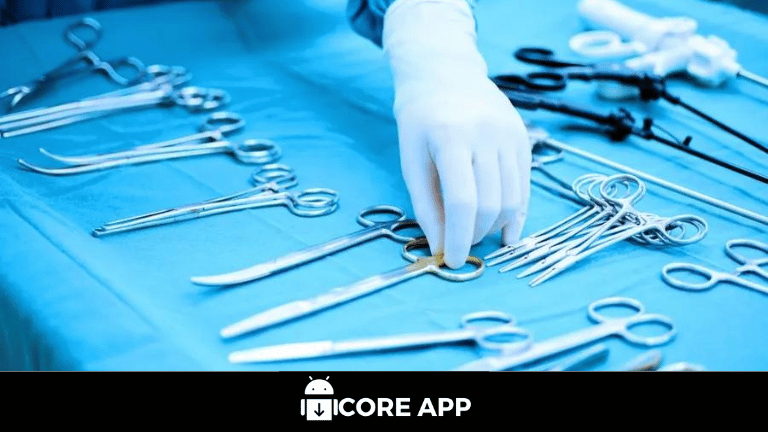How to Become a Surgical Tech? Pursuing a career in the healthcare industry can be both rewarding and challenging. One profession that often flies under the radar but plays a crucial role in surgical procedures is that of a surgical technologist or surgical tech. If you’re interested in exploring this career path, this comprehensive guide will provide you with valuable insights into the world of surgical technology, including the necessary steps, educational requirements, job responsibilities, and potential career growth opportunities.
Contents
- 1 Understanding the Role of a Surgical Tech
- 2 Educational Requirements for Becoming a Surgical Tech
- 3 Job Responsibilities and Daily Duties
- 4 Work Environment and Career Prospects
- 5 Personal Qualities and Skills for Success
- 6 FAQs
- 6.1 What is a surgical tech, and what do they do?
- 6.2 What education and training are required to become a surgical tech?
- 6.3 Are there any certifications or licenses required to work as a surgical tech?
- 6.4 What skills are important for a surgical tech to have?
- 6.5 What is the job outlook for surgical techs?
Understanding the Role of a Surgical Tech
Before delving into the specifics of becoming a surgical tech, it’s essential to grasp the nature of this profession and its significance within the healthcare system.
What is a Surgical Tech?
A surgical technologist, also known as a surgical tech, operating room technician, or scrub tech, is an essential member of the surgical team. These professionals are responsible for ensuring that surgical procedures run smoothly by providing vital support to surgeons, anesthesiologists, and nurses throughout the operation.
Surgical techs’ primary duties involve preparing the operating room, arranging and sterilizing surgical instruments and equipment, maintaining a sterile environment, and assisting surgeons during procedures. They play a crucial role in patient safety, infection control, and efficient surgical workflow.
The Importance of Surgical Techs
While the surgeon is the central figure in an operating room, surgical techs are indispensable in ensuring successful surgical outcomes. Their attention to detail, technical skills, and ability to anticipate the surgeon’s needs contribute significantly to the overall efficiency and safety of surgical procedures.
By providing essential support and ensuring the availability of necessary instruments and supplies, surgical techs enable surgeons to focus on the intricacies of the operation, ultimately enhancing patient care and improving surgical outcomes.
Educational Requirements for Becoming a Surgical Tech
To embark on a career as a surgical technologist, you’ll need to fulfill specific educational requirements. While the exact path may vary depending on your location and desired level of expertise, the following options are commonly pursued:
Certificate or Diploma Programs
Many aspiring surgical techs opt to enroll in certificate or diploma programs offered by community colleges, vocational schools, or technical institutes. These programs typically take between 9 to 24 months to complete and provide a combination of classroom instruction and hands-on clinical experience.
In these programs, students acquire knowledge and skills in areas such as:
- Anatomy and physiology
- Medical terminology
- Surgical procedures and techniques
- Sterilization and infection control
- Surgical instrumentation
- Patient care and safety
Completing an accredited surgical technology program and earning a certificate or diploma is often the minimum requirement for entry-level positions in the field.
Associate’s Degree Programs
For those seeking a more comprehensive educational foundation, pursuing an Associate’s degree in Surgical Technology can be a viable option. These two-year programs, offered by community colleges and some universities, provide a well-rounded curriculum that combines general education courses with specialized surgical technology coursework.
In addition to the core surgical tech subjects, Associate’s degree programs may include courses in areas such as:
- Healthcare ethics
- Medical law and regulations
- Pharmacology
- Healthcare management
- Communication and interpersonal skills
Earning an Associate’s degree can enhance your competitiveness in the job market and potentially open doors to leadership or specialized roles within the surgical technology field.
Certification and Licensure
While not universally required, many employers prefer or mandate that surgical techs obtain professional certification. The most widely recognized certification is offered by the National Board of Surgical Technology and Surgical Assisting (NBSTSA).
To become a Certified Surgical Technologist (CST), candidates must meet the following requirements:
- Complete an accredited surgical technology program
- Pass the CST examination administered by the NBSTSA
Additionally, some states require surgical techs to hold a specific license or registration in order to practice legally within their jurisdiction. It’s crucial to research and comply with the licensing requirements in your state or region.
Job Responsibilities and Daily Duties
As a surgical tech, your daily duties and responsibilities will be diverse and crucial to the smooth operation of surgical procedures. Here’s an overview of some common tasks and responsibilities you can expect:
Pre-Operative Duties
- Prepare the operating room by ensuring proper equipment, supplies, and instruments are available and sterilized
- Set up surgical equipment and instruments according to the specific procedure
- Assist in positioning and preparing the patient for surgery
- Ensure proper inventory and stocking of supplies
Intra-Operative Duties
- Maintain a sterile environment and assist in draping the patient
- Anticipate the surgeon’s needs and provide the required instruments, supplies, or equipment during the procedure
- Monitor and maintain the sterile field throughout the surgery
- Assist in handling and labeling specimens or tissue samples
- Maintain accurate counts of surgical instruments, sponges, and other supplies
Post-Operative Duties
- Assist in transferring the patient to the recovery area
- Decontaminate and restock the operating room for the next procedure
- Dispose of soiled supplies and hazardous materials properly
- Ensure proper cleaning, sterilization, and maintenance of surgical instruments and equipment
Additional Responsibilities
- Adhere to safety protocols and infection control measures
- Maintain accurate surgical records and documentation
- Collaborate with other members of the surgical team, including surgeons, anesthesiologists, and nurses
- Participate in ongoing education and training to stay updated with new techniques and technologies
Work Environment and Career Prospects
Understanding the typical work environment and potential career growth opportunities can help you make an informed decision about pursuing a career as a surgical tech.
Work Environment
Surgical techs primarily work in hospital operating rooms, but they may also find employment in various healthcare settings, including:
- Outpatient surgical centers
- Specialty clinics (e.g., orthopedic, ophthalmological, or dental)
- Ambulatory care facilities
- Physicians’ offices (for minor surgical procedures)
The nature of the work can be physically demanding, as surgical techs are often required to stand for extended periods, lift and move heavy equipment, and maintain a high level of focus and attention to detail throughout surgical procedures.
Typical Work Schedule
The work schedule for surgical techs can vary depending on the healthcare facility and the specific surgical procedures scheduled. Many surgical techs work full-time, and their shifts may include evenings, nights, weekends, and holidays to accommodate emergency or scheduled surgeries.
Additionally, surgical techs may be required to be on-call or work overtime to support unexpected surgical needs or staffing demands.
Career Growth and Advancement Opportunities
While the primary role of a surgical tech is focused on providing support during surgical procedures, there are opportunities for career growth and advancement within the field. Some potential paths for career advancement include:
- Specialization: Surgical techs can choose to specialize in specific areas, such as orthopedics, neurosurgery, or cardiovascular surgery, gaining expertise and potentially higher earning potential.
- Leadership roles: With experience, surgical techs can pursue supervisory or management positions, overseeing teams of surgical technologists or managing surgical services departments.
- Education and training: Experienced surgical techs may transition into teaching roles, providing instruction and training to aspiring surgical technologists in educational programs or healthcare facilities.
- Certification advancement: Surgical techs can pursue additional certifications, such as the Certified Surgical First Assistant (CSFA) or Certified Surgical Technologist (CST) in specialized areas, enhancing their skills and career prospects.
- Continuing education: Ongoing professional development and continuing education can lead to advancement opportunities, such as becoming a surgical technology program director or pursuing further education in related fields like nursing or healthcare administration.
By continuously developing their skills, seeking additional certifications, and gaining experience, surgical techs can explore various career growth opportunities and contribute to the advancement of patient care and surgical excellence.
Personal Qualities and Skills for Success
While education and training are essential for becoming a surgical tech, certain personal qualities and skills can greatly contribute to your success in this rewarding career. Here are some key attributes that can help you thrive as a surgical technologist:
Attention to Detail
Surgical procedures demand precision and accuracy. As a surgical tech, you’ll need to have a keen eye for detail to ensure that all instruments, equipment, and supplies are properly prepared, counted, and accounted for throughout the surgical process. Attention to detail is crucial for maintaining a sterile environment and preventing potential errors or complications.
Manual Dexterity and Hand-Eye Coordination
Many tasks performed by surgical techs require excellent manual dexterity and hand-eye coordination. You’ll need to be able to handle surgical instruments with precision, assist in positioning patients, and perform tasks that demand steady hands and precise movements.
Stress Management and Emotional Stability
Working in an operating room can be a high-pressure environment, with intense situations and critical decisions being made. Surgical techs must be able to remain calm, focused, and emotionally stable, even in stressful or emergency situations. The ability to manage stress and maintain composure is essential for ensuring patient safety and supporting the surgical team.

FAQs
What is a surgical tech, and what do they do?
A surgical tech, also known as a surgical technologist, is a healthcare professional who assists surgeons during surgical procedures. They are responsible for preparing the operating room, sterilizing equipment, and ensuring that the surgical team has everything they need during the procedure.
What education and training are required to become a surgical tech?
To become a surgical tech, you typically need to complete a surgical technology program, which can be a certificate, diploma, or associate degree program. These programs are usually offered by community colleges, vocational schools, and some hospitals.
Are there any certifications or licenses required to work as a surgical tech?
While certification is not always required, many employers prefer to hire certified surgical techs. The National Board of Surgical Technology and Surgical Assisting (NBSTSA) offers the Certified Surgical Technologist (CST) credential, which is widely recognized in the field.
What skills are important for a surgical tech to have?
Surgical techs should have strong attention to detail, good hand-eye coordination, and the ability to work well under pressure. They should also have excellent communication skills and be able to work effectively as part of a team.
What is the job outlook for surgical techs?
The job outlook for surgical techs is strong, with the Bureau of Labor Statistics projecting a 9% growth in employment from 2020 to 2030, which is faster than the average for all occupations. This growth is due to an increasing demand for surgical procedures as the population ages.
